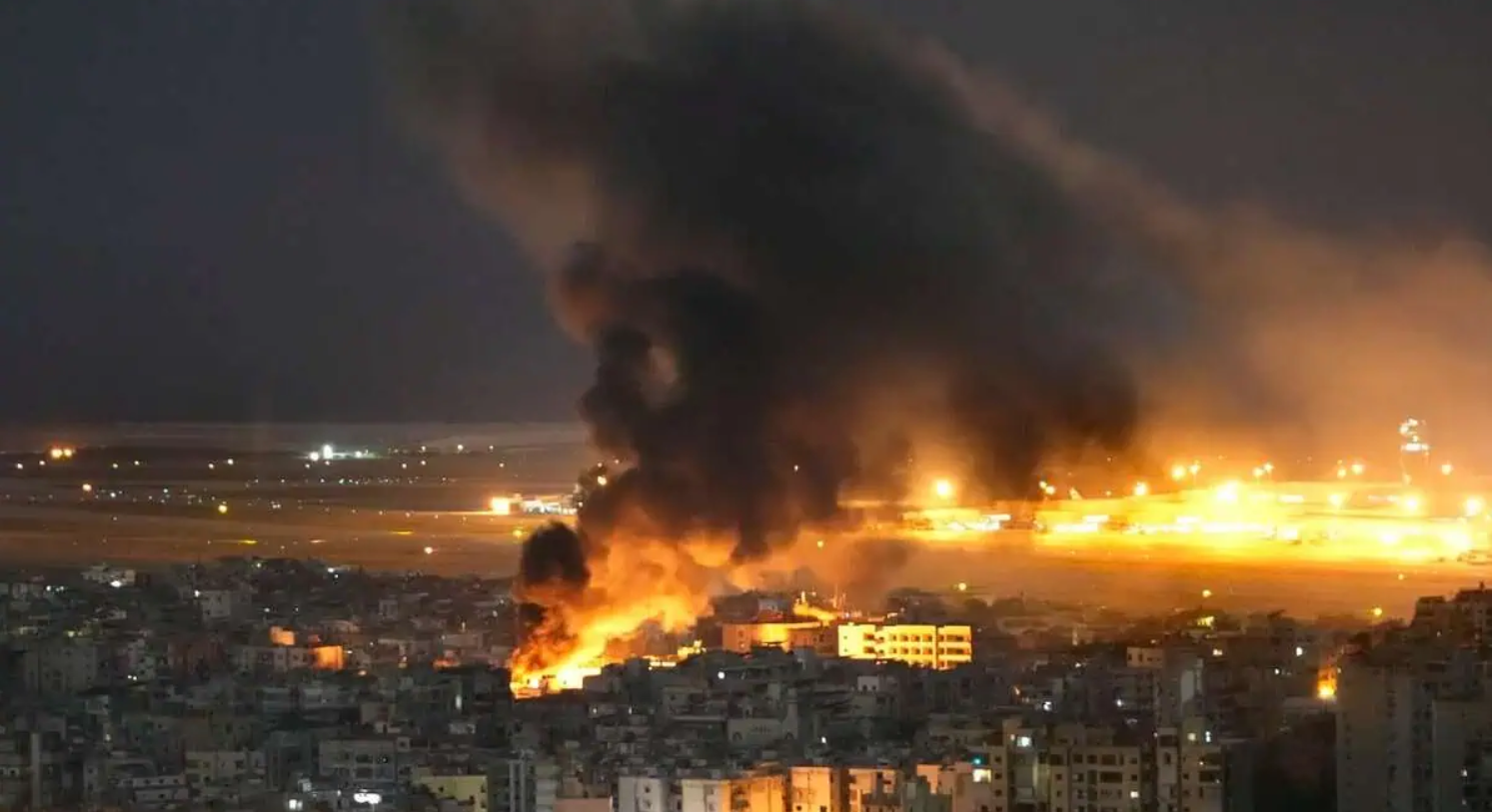Israel Launches Strikes on Houthi-Controlled Ports and Power Plant in Yemen; Rebels Retaliate with Missile Fire
In a fresh escalation in the Middle East, Israel’s military launched targeted airstrikes late Sunday night on key infrastructure in Yemen’s Houthi-controlled territory. The offensive comes amid rising regional tensions and stalled ceasefire talks in Gaza.
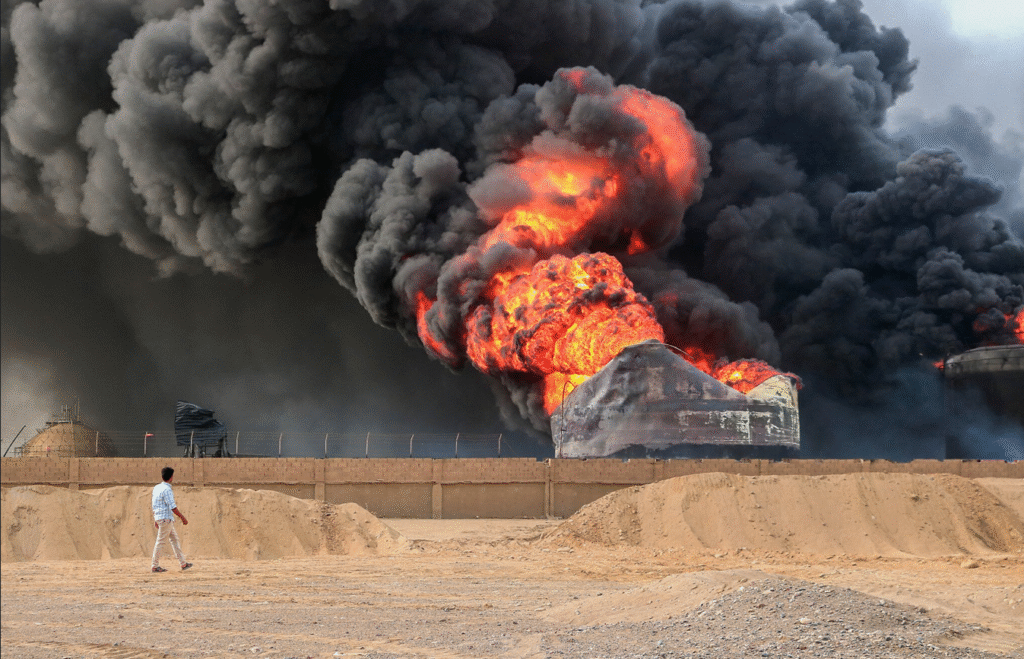
Israeli Airstrikes Hit Ports and Power Facility
According to an official military statement, Israeli forces bombed three major ports—Hodeidah, Ras Isa, and as-Salif—along the Red Sea coast, in addition to targeting the Ras Kathib power station. Another strike was carried out on a radar system installed aboard the Galaxy Leader, a commercial ship previously seized by the Houthis and docked in Hodeidah.
These attacks mark Israel’s first aerial operation in Yemen in nearly a month. The renewed military action followed an earlier incident on Sunday when the Israeli army claimed it had intercepted a missile launched from Houthi-controlled territory.
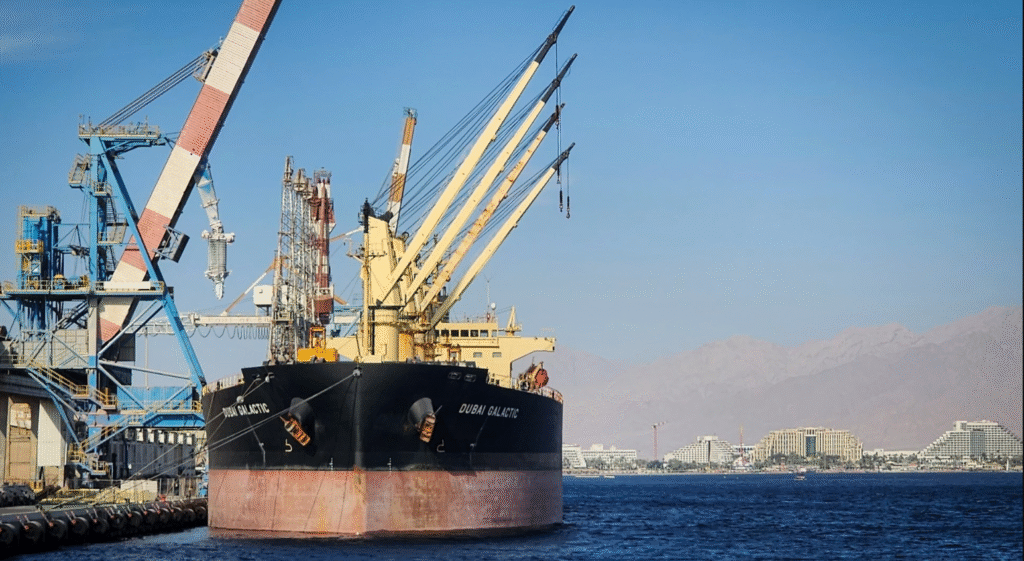
So far, there have been no confirmed reports of casualties resulting from the strikes.
Houthis Respond with Missile Barrage
Just hours after the Israeli strikes, Houthi forces launched two missiles toward Israeli territory, escalating the situation further. The rebel group’s military spokesperson, Brigadier General Yahya Saree, claimed responsibility in a video statement on Monday.
Saree confirmed that the retaliatory strikes targeted Ben Gurion Airport, Ashdod and Eilat ports, and a power station in Ashkelon. He described the missile launches as a direct response to Israeli “aggression” on Yemeni soil.
The Israeli army acknowledged the missile launches and reported attempts to intercept them. However, the effectiveness of the interception was still being assessed. Emergency services in Israel confirmed there were no injuries or immediate damage from the incoming missiles.
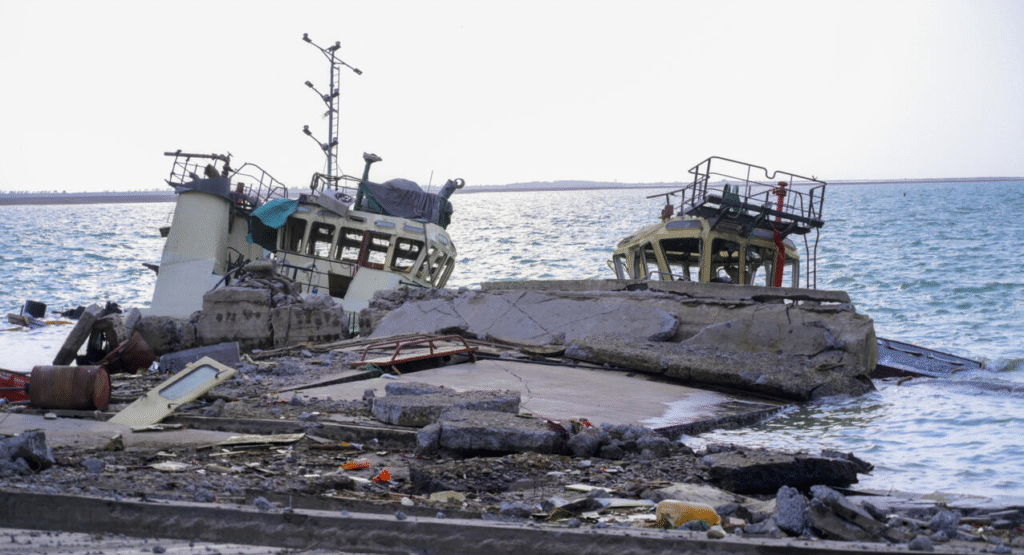
Houthis Reaffirm Support for Gaza
The Houthi rebels, who have consistently framed their military actions as acts of solidarity with Palestinians in Gaza, have intensified their attacks on Israeli and Western-linked vessels in the Red Sea since the Gaza conflict reignited in 2023. Over the past year, they have claimed responsibility for hundreds of missile launches and more than 100 maritime attacks.
Although Houthi operations were briefly paused following a temporary ceasefire between Hamas and Israel in January, they resumed aggressively in March after U.S.-led strikes in Yemen killed nearly 300 people. Those strikes were themselves a response to Houthi targeting of international shipping lanes.
Houthis Downplay Israeli Offensive
In an apparent move to project resilience, Houthi-affiliated media outlets in Yemen downplayed the impact of the Israeli strikes. Al Masirah TV confirmed attacks on the Yemeni port city of Hodeidah, while the Saba news agency corroborated reports of bombings on the three Yemeni ports and the Ras Kathib power plant.
Houthi spokesperson Ameen Hayyan Yemeni stated that the group’s air defense systems—equipped with locally manufactured surface-to-air missiles—successfully repelled the Israeli assault on Yemen. He claimed that Israeli warplanes were forced to retreat after facing “significant resistance,” causing what he described as “confusion among enemy pilots.”
Al Jazeera’s Nabil Alyousefi, reporting from the Yemeni capital, Sanaa, noted that Houthi officials insisted there were no significant material or human losses in Yemen. Sources cited roughly 30 minutes of confrontation between the Yemeni rebels’ air defenses and Israeli forces, portraying the Houthis as well-prepared to handle future attacks.
Israel says it struck Huthi sites across Yemenhttps://t.co/oniPNNaY2a pic.twitter.com/r1XiVPDHJX
— Jacaranda News (@JacaNews) July 7, 2025
Maritime Attack Raises Further Alarm
Sunday night’s escalation came just hours after an unidentified attack on a commercial cargo ship in the Red Sea. The vessel reportedly caught fire following a grenade and drone strike, forcing the crew to abandon ship. Although no group has officially claimed responsibility, the U.K. Maritime Trade Operations agency said the incident bore all the hallmarks of a typical Houthi operation.
Broader Middle East Tensions
In a parallel development, Israel also carried out airstrikes on Hezbollah positions in Lebanon. According to Israeli military sources, the attacks focused on infrastructure in southern Lebanon and the Bekaa Valley, allegedly used for storing weapons and launching rockets.
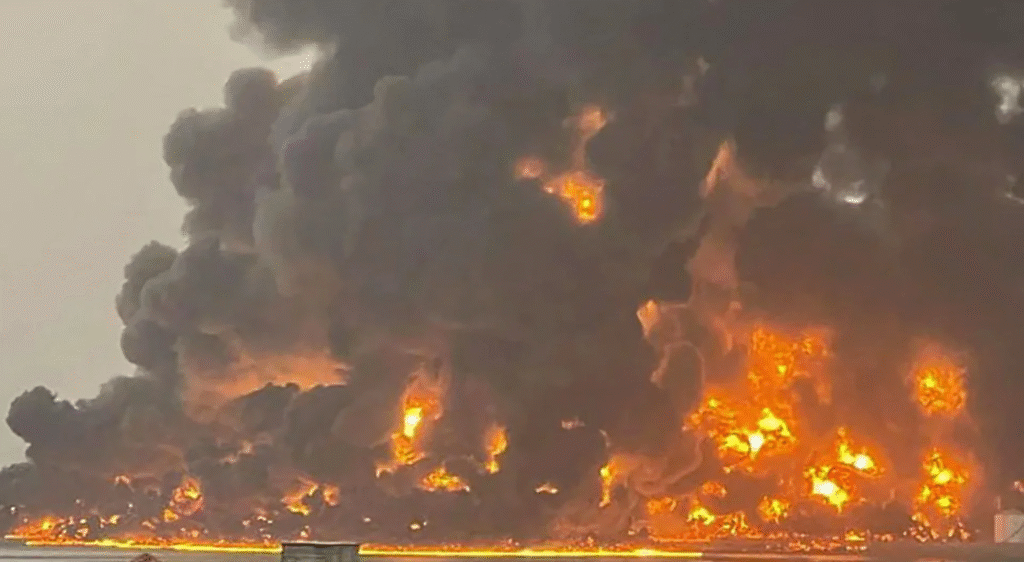
Though a ceasefire was brokered with Hezbollah in November 2023, Israel has continued to conduct sporadic airstrikes in Lebanese territory, claiming Hezbollah has violated the agreement. However, these allegations are not substantiated with public evidence.
The latest actions are part of Israel’s broader regional campaign, which over the past year has included attacks on the Gaza Strip, the West Bank, Syria, and even deep into Iran—most notably damaging Tehran’s nuclear facilities following U.S.-led air raids in March.
A Fragile Moment for the Region
This flare-up comes at a critical juncture. Ceasefire negotiations between Israel and Hamas are hanging in the balance, while Iran is cautiously weighing whether to return to nuclear talks in the aftermath of U.S. strikes on its atomic infrastructure.
The increasingly multi-front nature of Israel’s military campaigns is drawing global concern, with fears that the conflict could spiral into a wider regional war involving non-state actors and rival powers.
Also Read :
Iran–Israel Ceasefire Announced by Trump: Full Timeline of Events
Breaking: Israel Orders Tehran Evacuation—Trump Drops Cryptic Message
Israel Attacks Iran: Full Breakdown of Escalating Conflict, Nuclear Threats, and Global Fallout

